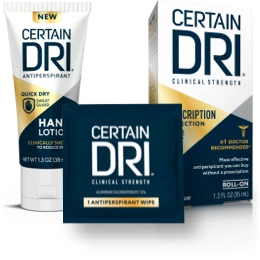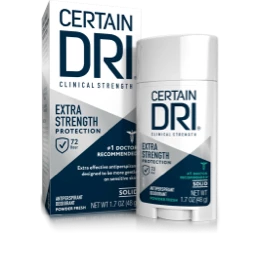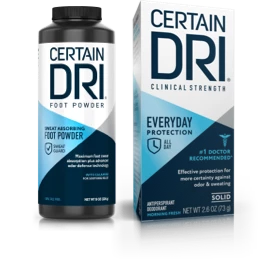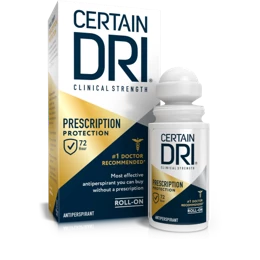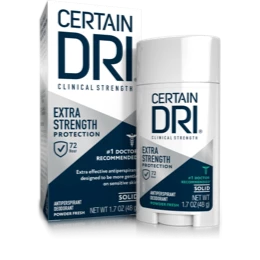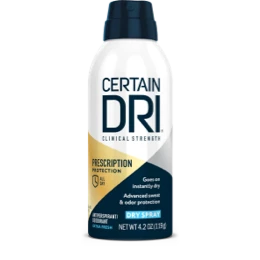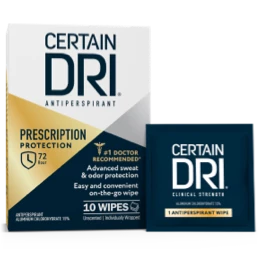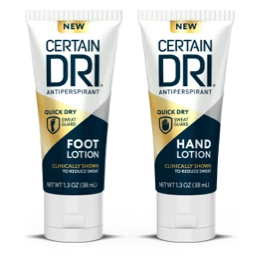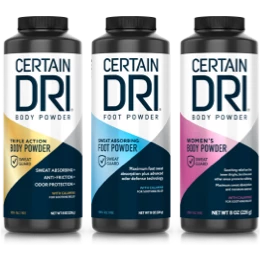Sweat FAQs

A true antiperspirant – like Certain Dri – should inhibit the flow of perspiration. The more effective the formulation, the more effective and longer-lasting the antiperspirant relief will be. Generally, an antiperspirant is also a deodorant because it prevents perspiration which retards bacteria and odor formation. However, a deodorant is not an antiperspirant.
Deodorants differ from antiperspirants in that they do not control the flow of sweat. Both antiperspirants and deodorants often contain fragrances to help mask the smell of body odor. Rarely, however, does a deodorant retard bacterial growth and odor for more than a very brief time.
Any of the following factors, separately or combined, can cause varying amounts of perspiration: physical exertion; mental or emotional stress; warm or hot temperatures; non porous, heavy clothing; obesity or endocrine dysfunction; inherited factors etc. When your body “overheats” as a result of these factors, it activates the sweat glands, especially those in the underarm area, to produce perspiration which is emitted through your skins’ pores.” The perspiration then evaporates to produce a cooling effect, thereby reducing the body’s skin temperature. To learn more visit www.sweathelp.org
In its freshly released state, perspiration is generally odorless. However, when it exists in a confined and damp underarm area, it provides an environment that combines with bacteria on the skin, which can then cause odor. Specifically, sweat from the apocrine glands, located in the underarms, contains fatty substances and proteins that interact with bacteria living on the skin to create body odor.
Source: https://www.wsj.com/articles/SB10001424127887323926104578278290520663794
Bedtime application “really is the best way to use an antiperspirant,” says David Pariser, M.D., president of the American Academy of Dermatology. At night, when people perspire less, more of the antiperspirant’s aluminum-based active ingredient is pulled into the sweat ducts. Because there’s more antiperspirant present, it more effectively plugs pores. That signals the sweat glands to reduce or stop perspiration. The effect lasts even after morning bathing.
Source: https://www.consumerreports.org/cro/2012/05/apply-antiperspirant-at-night-and-sleep-tight/index.html
After shaving, the skin is typically irritated and applying Certain Dri can cause even further irritation. After showering, the skin under the arms is often moist and a warm shower can result in further perspiration. In order for Certain Dri to work effectively, the skin should be absolutely dry in order for the product to be absorbed into the pores.
WebMD interviewed a number of experts asking “Should we worry?” and the consensus is in short: No. There is no real scientific evidence that aluminum or any of the other ingredients in these products pose any threat to human health. For more information click here

